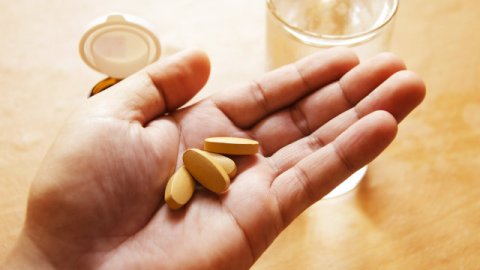Fecal Transplant in a Pill

From the recent Infectious Diseases Society of America meeting in San Francisco comes word of a new treatment for C. diff infection that’s safe, effective, and has no known down side except that it’s disgusting to think about.
The treatment: bacteria obtained from your relatives’ excrement, in pill form.
Infections involving the intestinal bacteriumClostridium difficile sicken half a million Americans a year and kill 14,000 a year, making it a serious public health concern. Symptoms include severe diarrhea (20 times a day is not uncommon), abdominal pain, and fever, leading to dehydration, weakness, and life-threatening colitis.
How do you get it? Funny you should ask, because at the same IDSA conference, a paper was presented showing that antibiotics are severely overprescribed for bronchitis and sore throats (which are usually not treatable with antibiotics). The antibiotics wipe out good bacteria in your gut, paving the way for infection by C. diff, which is often already present as a minority species.
Fecal transplantation has become an increasingly common way to treat C. diff infection. It’s effective about 90 percent of the time. But until now, it has typically involved receiving “donor” fecal material via enema, colonoscopic techniques, or nose tube. Not exactly convenient.
At the recent Infectious Disease Society meeting, University of Calgary researchers reported a high success rate when treating C. diff infections using custom-made pills. To make the pills, researchers purified fecal bacteria (often obtained from stool samples donated by patients’ family members) and then encapsulated the concentrated bacteria in triple-gel-coated tablets. The gel coats ensured that the pills would not leak or dissolve until passing into the small intestine. In the study, patients ingested 24 to 34 pills. The success rate: 28 out of 28 patients cured.
The U. Calgary study has not yet been published. More information about it can be found here.





